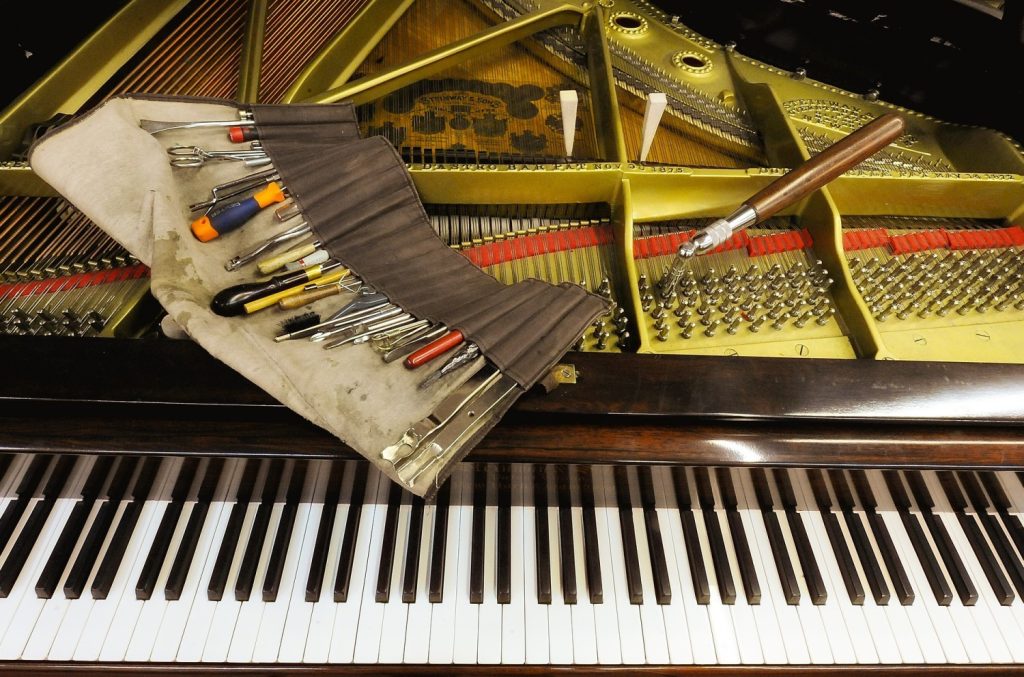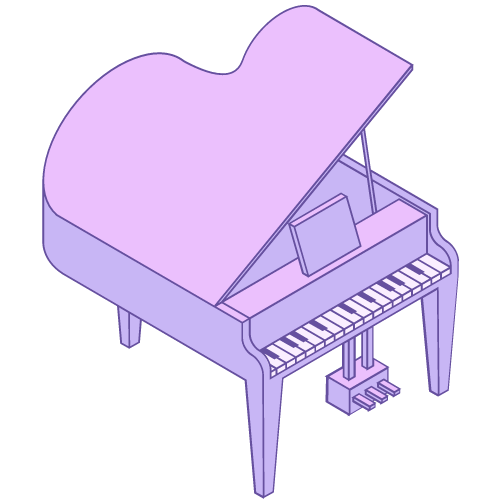Blog
Signs Your Piano Needs Professional Maintenance
Pianos are complex, finely crafted instruments that require regular maintenance to ensure they continue producing beautiful sound for years. While some basic care tasks can be done at home, there are certain signs that indicate your piano needs professional maintenance. Whether you have a grand piano, upright piano, or digital keyboard, recognizing these signs early can help prevent more serious problems down the road.
In this guide, we’ll explore the common signs that your piano requires professional attention, what these issues could mean, and why it’s important to address them promptly.
Why Regular Piano Maintenance is Important
Pianos consist of hundreds of moving parts, including strings, hammers, pedals, and the wooden structure. Over time, wear and tear can affect the piano’s performance, sound quality, and even its longevity. Regular maintenance from a professional technician can:

- Keep the piano in tune: A piano needs to be tuned regularly to maintain its sound.
- Ensure mechanical function: Pianos have intricate mechanisms that need adjusting and repairing.
- Preserve the piano’s value: Well-maintained pianos retain their value and playability.
However, without proper maintenance, your piano may start exhibiting signs of distress, requiring professional help.
Signs Your Piano Needs Professional Maintenance
1. The Piano Is Out of Tune
A piano that is out of tune is one of the most obvious signs that it needs attention. Over time, the strings inside the piano can stretch or contract due to changes in humidity and temperature, which can affect the tuning.
- Causes: Regular use, humidity fluctuations, or environmental changes.
- What to Look For: A noticeable difference in pitch, such as the sound of certain keys being flat or sharp compared to others. If you find that the tuning is inconsistent across the keyboard or difficult to tune back into place, it’s time for a professional to check the piano.
A professional piano tuner will adjust the strings to ensure that the pitch and tone are properly calibrated.
2. Sticking or Jammed Keys
If you notice that your piano keys are sticking or not responding properly, this could indicate a problem with the action mechanism inside the piano. The action is the system that connects the keys to the hammers, and it requires periodic adjustments to stay in optimal working condition.
- Causes: Dust buildup, mechanical wear, or misalignment in the action.
- What to Look For: Keys that don’t return to their original position after being pressed, keys that feel heavier than usual, or keys that don’t produce any sound at all. If the keys are physically stuck or jammed, it could be an issue with the action or pedal mechanism, and a professional technician will need to inspect and fix it.
3. Unusual or Odd Noises
If you start hearing unusual noises such as clicking, buzzing, or rattling sounds when you play your piano, this could indicate that internal parts are worn out or misaligned.
- Causes: Loose or damaged components, including hammers, dampers, or the action parts.
- What to Look For: A buzzing or rattling noise could come from a loose part inside the piano, such as a broken string, hammer, or a foreign object trapped inside the piano. A clicking sound could indicate that the hammers are not properly striking the strings, or the action is malfunctioning.
If you hear strange noises, it’s a good idea to contact a professional piano technician to avoid further damage.
4. Uneven Tone or Timbre
If the tone of your piano is uneven or if certain notes sound muffled, sharp, or weak compared to others, it may indicate that your piano requires professional maintenance. The tonal quality of a piano can be affected by a variety of issues, including changes in string tension, damper regulation, and key action.
- Causes: Problems with the dampers, pedals, or strings; misaligned hammers.
- What to Look For: If you notice that the tone of specific notes sounds noticeably different from the others, this is often a sign that a part of the action or string system is malfunctioning. A professional technician can help adjust or replace the parts that are causing the uneven sound.
A piano technician can regulate the action, adjust the hammers, and fine-tune the internal components to restore evenness across all keys.
5. Difficulty with the Pedals
The pedals on a piano control important functions such as the sustain and softening of the notes. If your pedals are sticking, not working as expected, or making odd noises, it may be a sign that they need to be adjusted or repaired.
- Causes: Wear and tear on the pedal mechanism, dust buildup, or mechanical failure.
- What to Look For: If the pedals feel unusually heavy, or if they don’t respond correctly (for instance, the sustain pedal doesn’t hold notes or the soft pedal doesn’t soften the sound), this is a sign that the internal pedal mechanism is malfunctioning.
A piano technician can inspect the pedal system, clean it, and adjust or repair any parts that are causing the issue.
6. The Piano Is Becoming Harder to Play
If you feel that your piano is becoming more difficult to play—for example, the keys feel stiffer than usual or you notice increased resistance when pressing them—this could indicate an issue with the action or internal mechanism.
- Causes: Dried-out or worn-out action components, dust accumulation, or loss of lubrication.
- What to Look For: If the keys are harder to press or you’re unable to achieve the level of control you used to have, it’s likely that internal parts need to be adjusted or lubricated. In some cases, the hammers may also be worn down, which can affect their ability to strike the strings effectively.
A professional technician can perform a regulation of the action, lubricate moving parts, and replace worn-out components to restore playability.
7. Broken or Rusted Strings
Strings are a crucial part of the piano’s sound production system. Over time, they can break or become rusted due to humidity, age, or physical damage. A broken string can cause the note to sound flat, muted, or completely silent.

- Causes: Excessive humidity, aging, or physical damage to the string.
- What to Look For: If you notice that a specific note is no longer sounding properly, or if you hear a buzzing sound coming from a specific string, it could be broken or rusted. In some cases, you might notice rust spots on the strings themselves, which can affect their tension and the overall sound quality.
A piano technician can replace broken strings, remove rust, and ensure that the tension on the strings is properly adjusted.
8. Key or Hammer Misalignment
Pianos can suffer from misalignment issues in the key or hammer mechanisms, which can affect both the playability and sound quality of the piano.
- Causes: Normal wear, environmental changes, or mechanical failure.
- What to Look For: If you notice that certain keys are sticking, if there’s inconsistency in the tone, or if the hammers don’t strike the strings uniformly, there could be an alignment issue. Misalignment often results in uneven action and poor sound quality.
A piano technician can realign the keys or hammers, ensuring smooth action and a more consistent sound.
Conclusion
Recognizing the signs that your piano needs professional maintenance is key to ensuring its longevity and preserving its sound quality. Regular tuning, proper care, and professional attention are necessary to keep your piano in optimal playing condition. If you notice any of the issues mentioned above—such as being out of tune, uneven tone, sticking keys, or broken strings—it’s important to contact a qualified piano technician as soon as possible.
Investing in professional maintenance not only helps your piano sound its best but also protects your investment and prevents costly repairs down the road.


